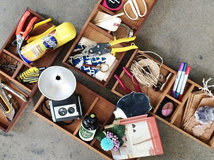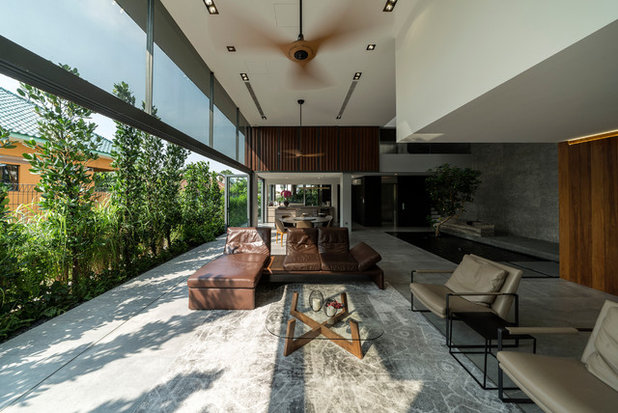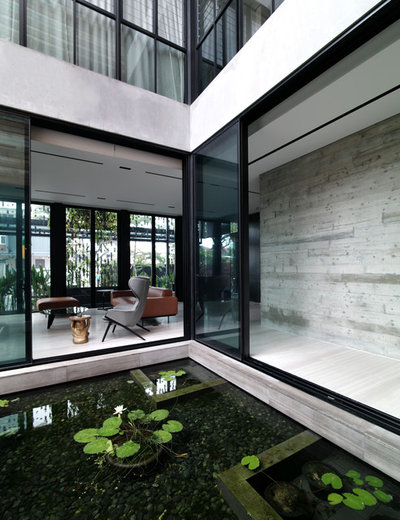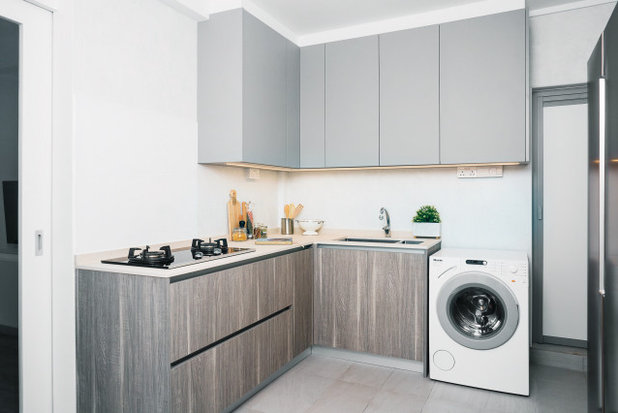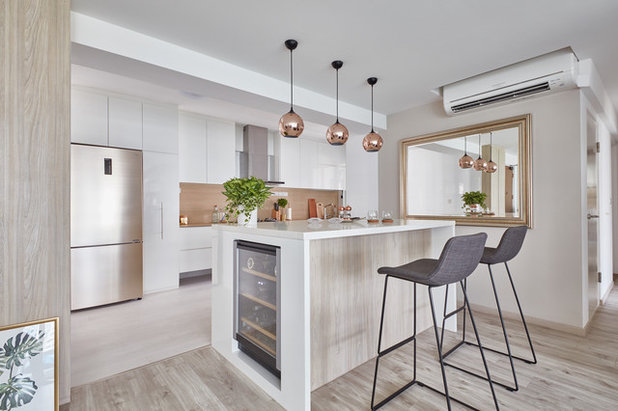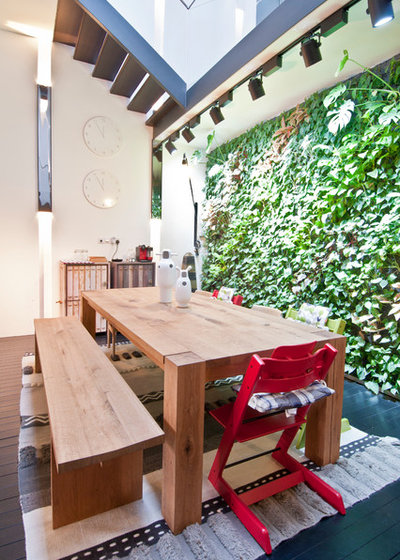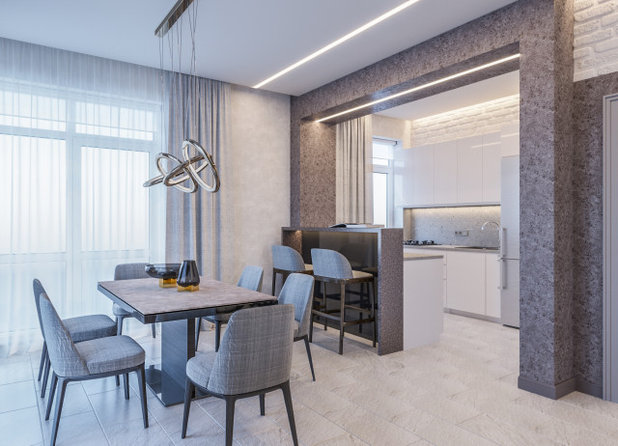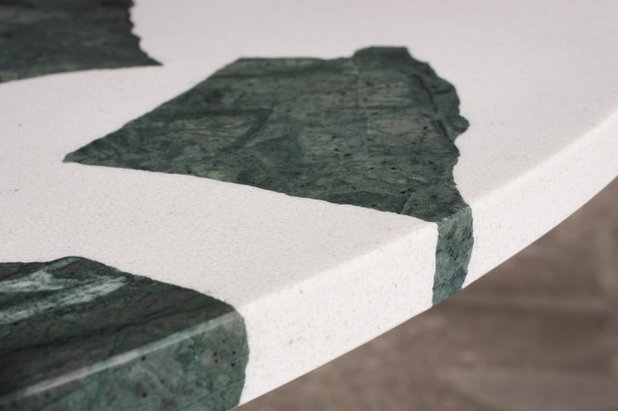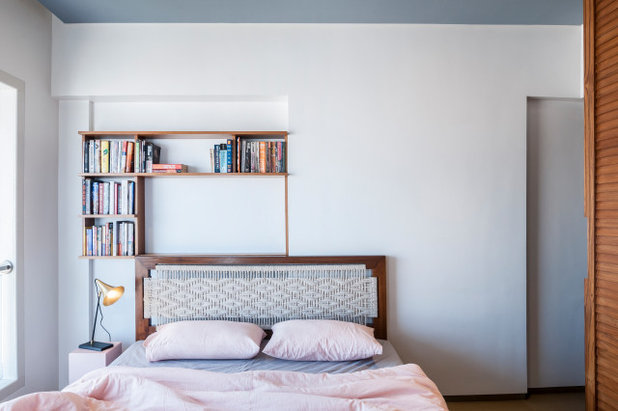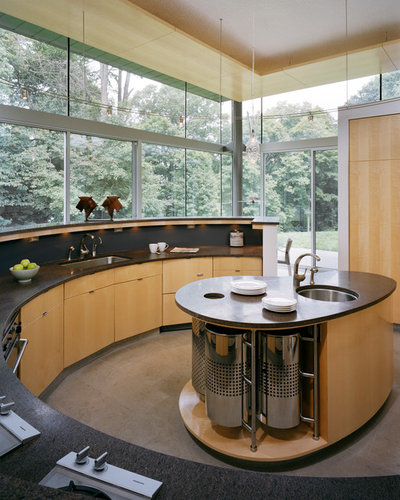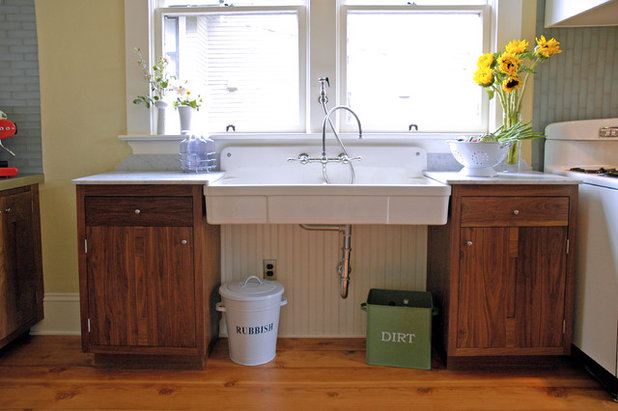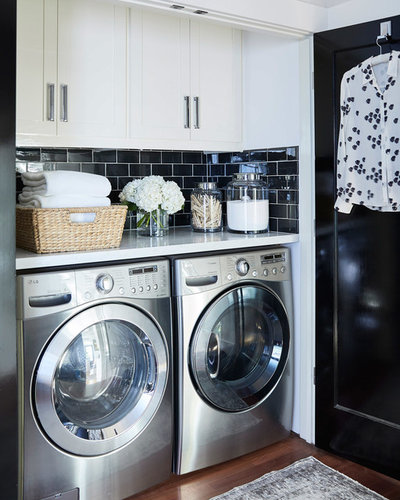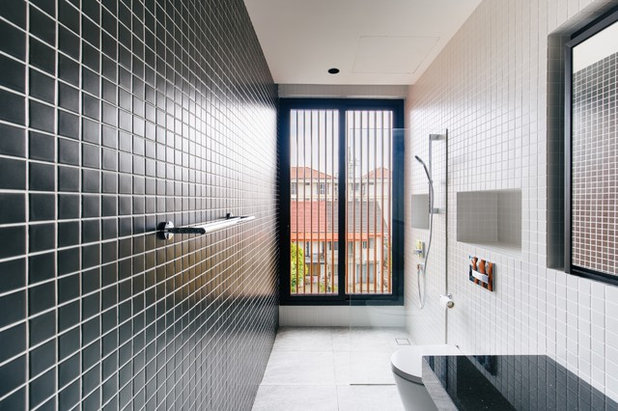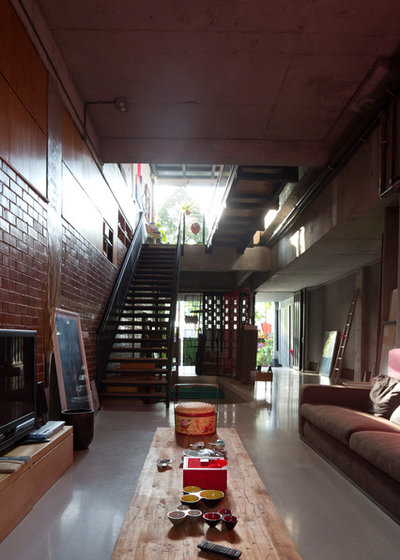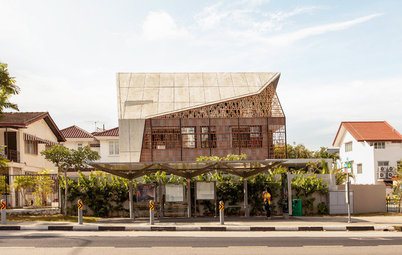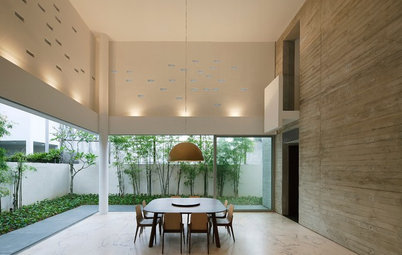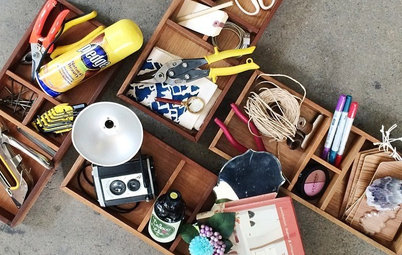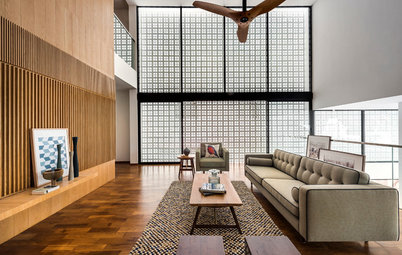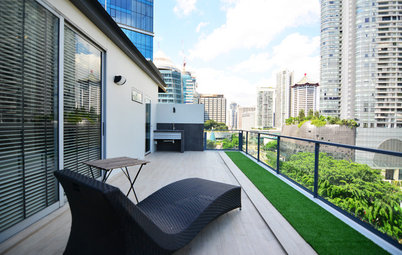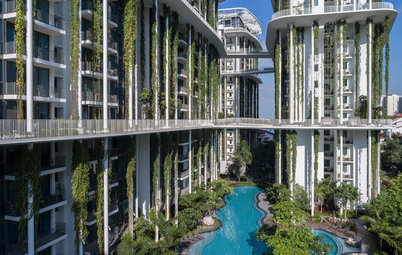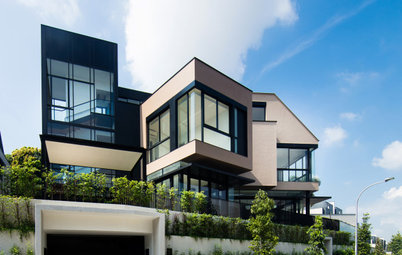Comments
Practical Tips for a More Sustainable Home
More in our new series on how to live a more sustainable life
Niki Bruce
26 March 2020
Houzz Contributor. Editor and Journalist for over 20 years. This is where I let my inner-homeowner run free!
Houzz Contributor. Editor and Journalist for over 20 years. This is where I let my... More
People around the world are taking issues of climate change and sustainability more seriously now than ever before. It’s time to step up and live more sustainably.
What is sustainable living?
Sustainable living is a lifestyle aimed at reducing one’s use of and impact on natural resources. There are endless ways to practice this from creating little to no waste, to not using materials (petrol, plastic, metals and certain types of timber) that depend heavily on natural resources and cause pollution and not eating resource-intensive foods like beef.
Sustainable living is a lifestyle aimed at reducing one’s use of and impact on natural resources. There are endless ways to practice this from creating little to no waste, to not using materials (petrol, plastic, metals and certain types of timber) that depend heavily on natural resources and cause pollution and not eating resource-intensive foods like beef.
What is your ‘carbon footprint’?
You may have heard this term being bandied around recently – usually in reference to the environmental cost of flying. Carbon footprint refers to the total amount of greenhouse gas emissions caused by something – an airplane, a product or organisation or even a building. It is usually described as a ‘carbon dioxide equivalent’, i.e. if you take X number of overseas flights, you have produced X amount of carbon dioxide.
You may have heard this term being bandied around recently – usually in reference to the environmental cost of flying. Carbon footprint refers to the total amount of greenhouse gas emissions caused by something – an airplane, a product or organisation or even a building. It is usually described as a ‘carbon dioxide equivalent’, i.e. if you take X number of overseas flights, you have produced X amount of carbon dioxide.
Reducing your energy use
There are a number of ways you can practice sustainability at home; some of which you might already be doing, such as buying appliances that have good energy-use ratings. Energy Efficient Singapore explains what various energy ratings mean and how to work out what you really need in your home.
There are a number of ways you can practice sustainability at home; some of which you might already be doing, such as buying appliances that have good energy-use ratings. Energy Efficient Singapore explains what various energy ratings mean and how to work out what you really need in your home.
Cooling
This is where knowing about how much energy your appliances use becomes important. You need to buy more efficient appliances, or not use them as much. A top tip for most homes is to reduce the amount of air-conditioning you use at home. Yes, it gets very hot in Singapore, but there are other ways of staying cool.
6 ways to cool off without air conditioning
This is where knowing about how much energy your appliances use becomes important. You need to buy more efficient appliances, or not use them as much. A top tip for most homes is to reduce the amount of air-conditioning you use at home. Yes, it gets very hot in Singapore, but there are other ways of staying cool.
6 ways to cool off without air conditioning
You can also look to retro-fit your home with cooling features like Green Walls – a section of wall that you grow plants on – or add updated screens that will protect your home from excess heat externally.
Houzz Tour: The House With the ‘Green Wall’
Houzz Tour: The House With the ‘Green Wall’
Lighting
When it comes to lighting, update your fixtures with LED bulbs for reduced energy use, and a longer lifespan. As old-fashioned incandescent light bulbs are being phased out, it makes both economic, and environmental, sense to choose LED for your home.
When it comes to lighting, update your fixtures with LED bulbs for reduced energy use, and a longer lifespan. As old-fashioned incandescent light bulbs are being phased out, it makes both economic, and environmental, sense to choose LED for your home.
Consider more eco-friendly activities and materials
Renovating
When designing or updating your home, choose more sustainable materials like composite stone, recycled glass, stone or timber.
5 sustainable kitchen countertop materials
Renovating
When designing or updating your home, choose more sustainable materials like composite stone, recycled glass, stone or timber.
5 sustainable kitchen countertop materials
When it comes to decorating, look for furniture and textiles made of recycled or sustainable materials. Upcycled or vintage furniture is also a fantastic option since you are saving it from going into the landfill, and it is a great way to add personality to your home.
Recycling
Set up your own recycling bins to help sort your waste before you head to your building’s communal bins.
Set up your own recycling bins to help sort your waste before you head to your building’s communal bins.
If you love growing plants, invest in a compost bin to turn food waste into rich goodness for plants. You can buy ones that are designed to fit a small balcony space for small apartments. Compost is a great natural fertiliser that you can then use to grow healthy indoor plants, or even a few herbs and veggies on your balcony.
Cleaning
You can also choose to use natural or eco-friendly cleaning products. To this day, my mother still uses vinegar and baking soda for many cleaning tasks; and there’s nothing wrong with some old-fashioned ‘strong soap’ and elbow grease for cleaning tiles. Vinegar is great for cleaning glass and also for descaling the washing machine.
There are also a number of natural cleaning product companies that you can try - one of which sends you dehydrated products to save on its - and your - carbon footprint.
You can also choose to use natural or eco-friendly cleaning products. To this day, my mother still uses vinegar and baking soda for many cleaning tasks; and there’s nothing wrong with some old-fashioned ‘strong soap’ and elbow grease for cleaning tiles. Vinegar is great for cleaning glass and also for descaling the washing machine.
There are also a number of natural cleaning product companies that you can try - one of which sends you dehydrated products to save on its - and your - carbon footprint.
Water
There are lots of things you can do around your home to reduce your water use. Change your shower head to a low-flow model; and take shorter showers. Buy a washing machine that has been designed to use less water; same with a dishwasher if you have one. You can even save water by buying indoor plants that don’t drink much water like succulents.
Water-saving innovations for bathrooms
There are lots of things you can do around your home to reduce your water use. Change your shower head to a low-flow model; and take shorter showers. Buy a washing machine that has been designed to use less water; same with a dishwasher if you have one. You can even save water by buying indoor plants that don’t drink much water like succulents.
Water-saving innovations for bathrooms
Tell us
Are you interested in living a sustainable and eco friendly way? Tell us in the Comments below. And don’t forget to save your favourite images, bookmark the story, and join in the conversation.
More
Find a renovation professional in Singapore
Browse more Singapore photos for design inspiration
Are you interested in living a sustainable and eco friendly way? Tell us in the Comments below. And don’t forget to save your favourite images, bookmark the story, and join in the conversation.
More
Find a renovation professional in Singapore
Browse more Singapore photos for design inspiration
Related Stories
Expert Advice
Ask a Pro: How do I Incorporate Sustainable Materials in My Home?
By Niki Bruce
When it comes to having a sustainable home, it is important to choose the right materials
Full Story
Architecture
5 Houses With Different Climate-Responsive Screens
Whether it's for sun-shading or promoting natural ventilation, external screens are still the architects' go-to solution
Full Story
Materials
How to Find Singapore-Made Building and Renovation Materials
By Niki Bruce
Reduce your renovation’s carbon footprint by using locally made products and materials
Full Story
Expert Advice
Ask a Pro: How do I Shop for Sustainable Furniture?
By Niki Bruce
This article is part of a new series, Sustainability in Apartment Living, covering topics related to sustainable living
Full Story
Sustainability
How to Live More Sustainably in an Apartment
By Niki Bruce
Welcome to a new series covering how to live a more sustainable life
Full Story
Sustainability
Global Snapshot: Challenges to Building a Sustainable Future
By HouzzSG
In a special report, Houzz editors outline the challenges their countries face to promote sustainable building practices
Full Story
Architecture
Project #4: Case Study for a Sustainable, Multi-Generational Home
Flexibility in spatial planning and passive design strategies were key to achieving a Green Mark for this family home
Full Story
Lifestyle
Kevin McCloud Shares Surprisingly Simple Eco-Home Solutions
Kevin McCloud caught up with Houzz to talk sustainable design, eco materials and how to be green on a budget
Full Story
Lifestyle
Is Veganism the Future of Decor?
By Bea González
More and more consumers are looking for cruelty-free products for their lives and homes. Is this the future of design?
Full Story



